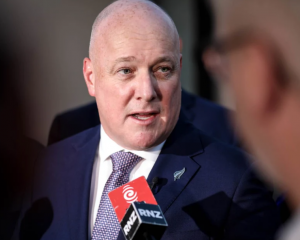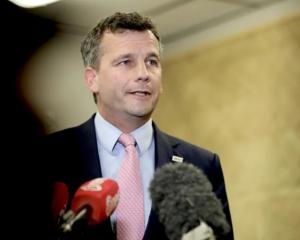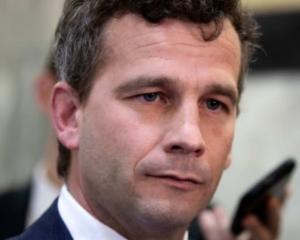Prime Minister John Key has slammed the idea of a Labour Party capital gains tax due to be announced next Thursday saying it would take New Zealand "screaming backwards."
It was an envy-based tax and New Zealand's tax system should be more "aspirational."
Speaking to the Wellington Employers' Chamber of Commerce this morning, Key questioned how much it would raise and said it would have to apply to everything other than the family home in order to fund Labour's big spending promises.
He said it would take 15 years before revenue was realised - unless it applied to unrealised assets - and was a complicated tax that had been rejected by two major tax reviews.
Key said a capital gains tax had been rejected by two major reviews, the Tax Working Group last year and the 2001 McLeod Tax review.
"They rejected it on the basis that they are very complex, there is a lot of tax structuring that ultimately becomes involved, people don't sell assets because people only pay a capital gains tax on realisation," he said.
Labour has not confirmed the details of its tax policy but it is understood the tax would not apply to the family home, that it would not be retrospective - though that has yet to be defined - and it would not apply to property forced to be sold by a death.
Given that Labour opposes National's policy to raise $5 billion to $ 7 billion in partial privatising of state assets, it has to find other ways to fund its big ticket items such as the $1.3 billion annual cost of making the first $5000 earned tax-free, and $250 million taking gst of fruit and vegetables.
Labour is expected to raise the top rate of taxation again it it becomes Government but Mr Key said raising it from 33 per cent to 39 per cent at $100,000, raised $1 billion over three years.
Key said a 15 per cent capital gains tax on individual's investment property would raise $700 million a year, after 15 years.
That wouldn't raise enough for Labour's promises.
Citing media speculation that a capital gains tax would raise $4.5 billion annually, he said that the Tax Working Group came up with that figure but it was at 30 per cent and not just on investment properties but shares, business properties, farms, baches.
Looking at the way Australia had implemented it, it had taken 15 years to fully achieve.
"So for the next three years if they don't sell assets as they are arguing they won't, if they do have a $5000 tax-free threshhold as they arguing they will and they do take gst off fruit and vegetables, they are $12 billion in the hole for the first three years of that theoretical government with no cash coming in at all.
"That is the reality. That is not us making things up. That is not us adding in all the other things they said they might do.
Key said it was not that panacea to rising house prices.
"If anybody thinks it is, they need to go and look at Australia, the United States and the UK," he said.
"All of them have a capital gains tax and all of them have experienced a substantial gain in house prices."
He said Labour's policy of a capital gains tax present two options: "One for a National Government that is going to take the country forward on very much a low-rate, broad-based aspirational tax system and vision for where New Zealand goes, or you can take the country screaming backwards under what Labour is proposing.
"Make no mistake, when you put more taxes on the economy you slow things down."
He said that 13 per cent of New Zealand taxpayers paid 51 per cent of all personal tax."
"So yes of course you can slug it to them with a higher top personal rate and target them rental properties and other things they might own."
But was that delivered was an economic environment where wages were lower than Australia and tax rates were no longer competitive.












